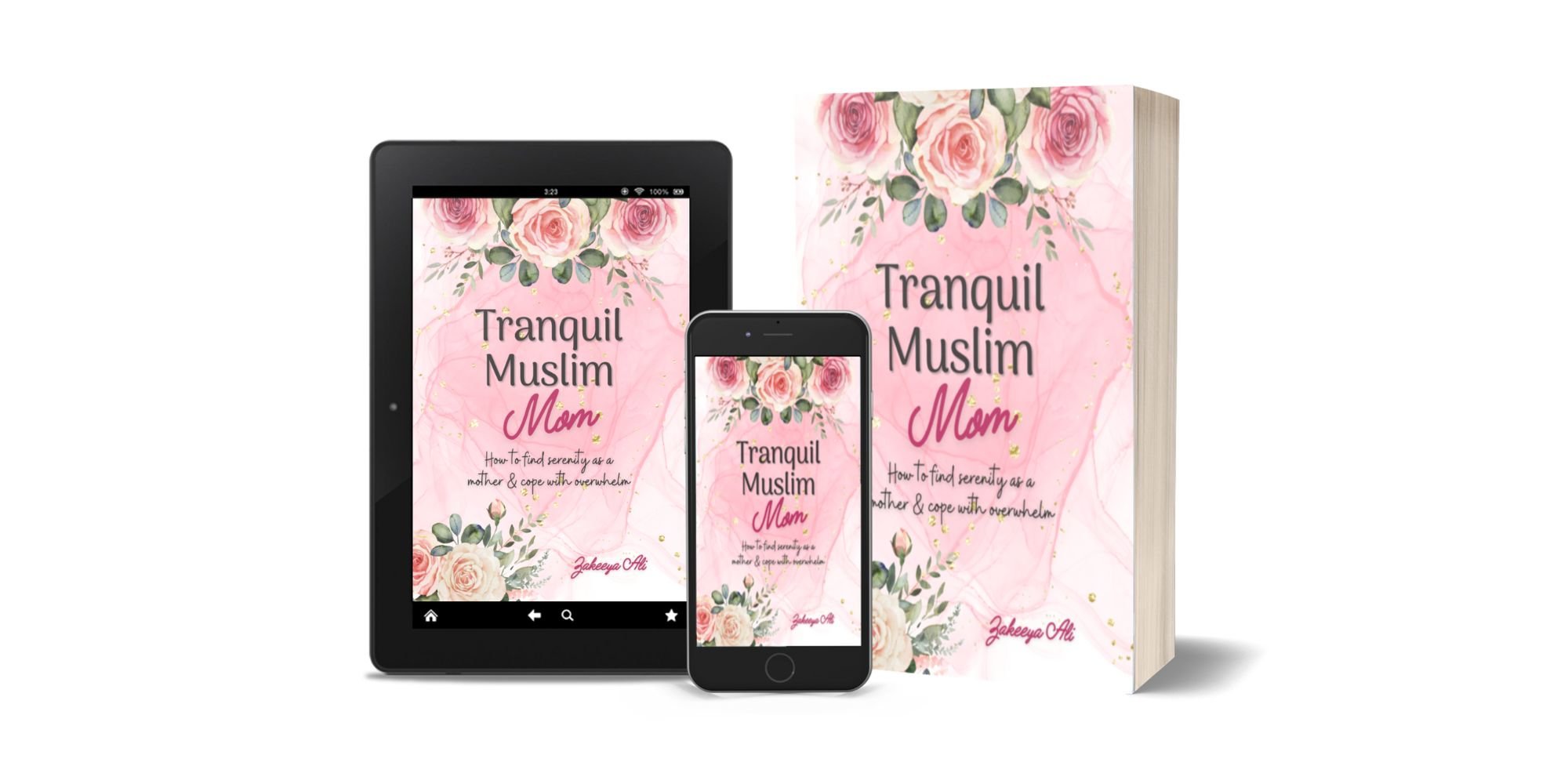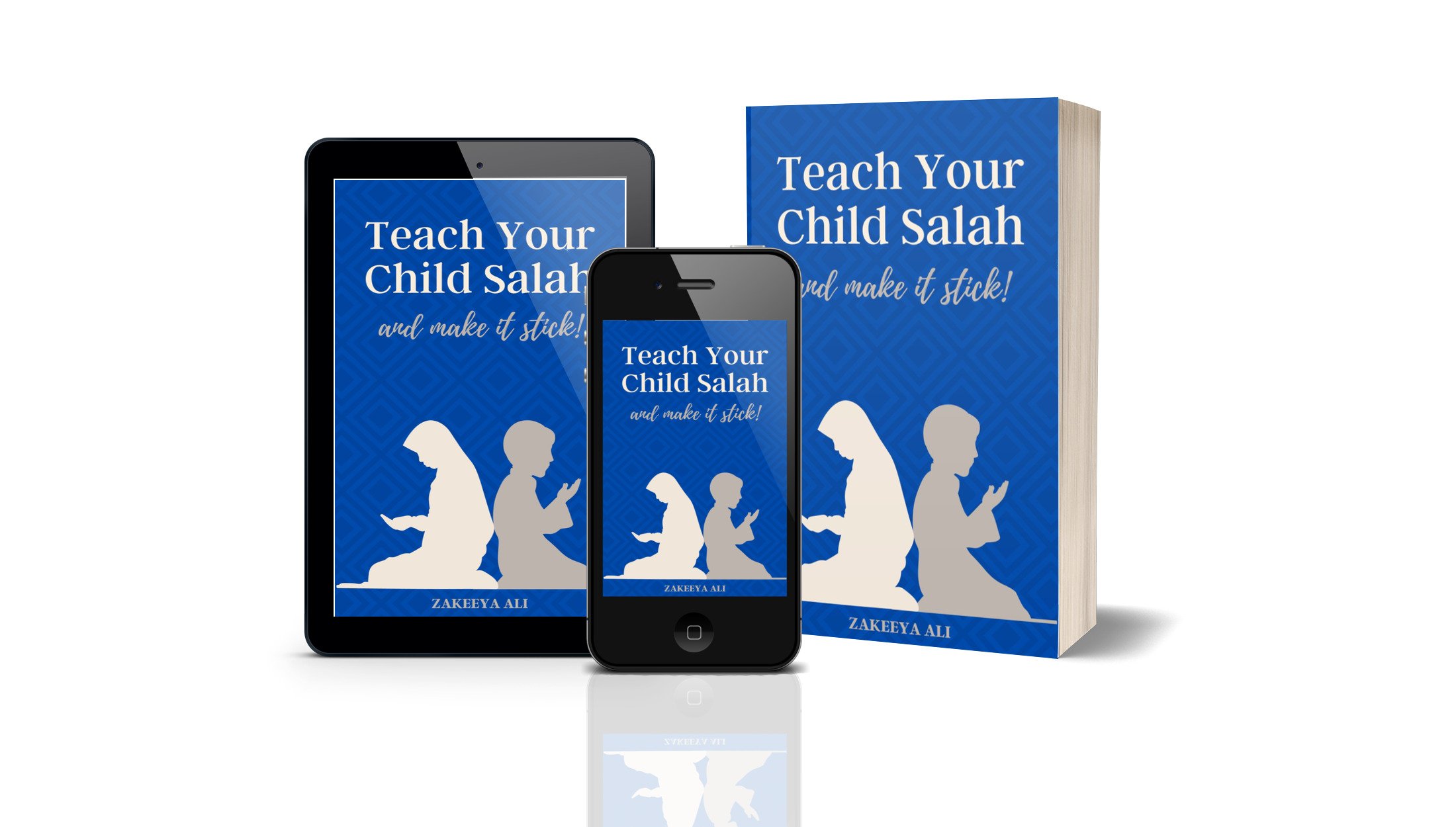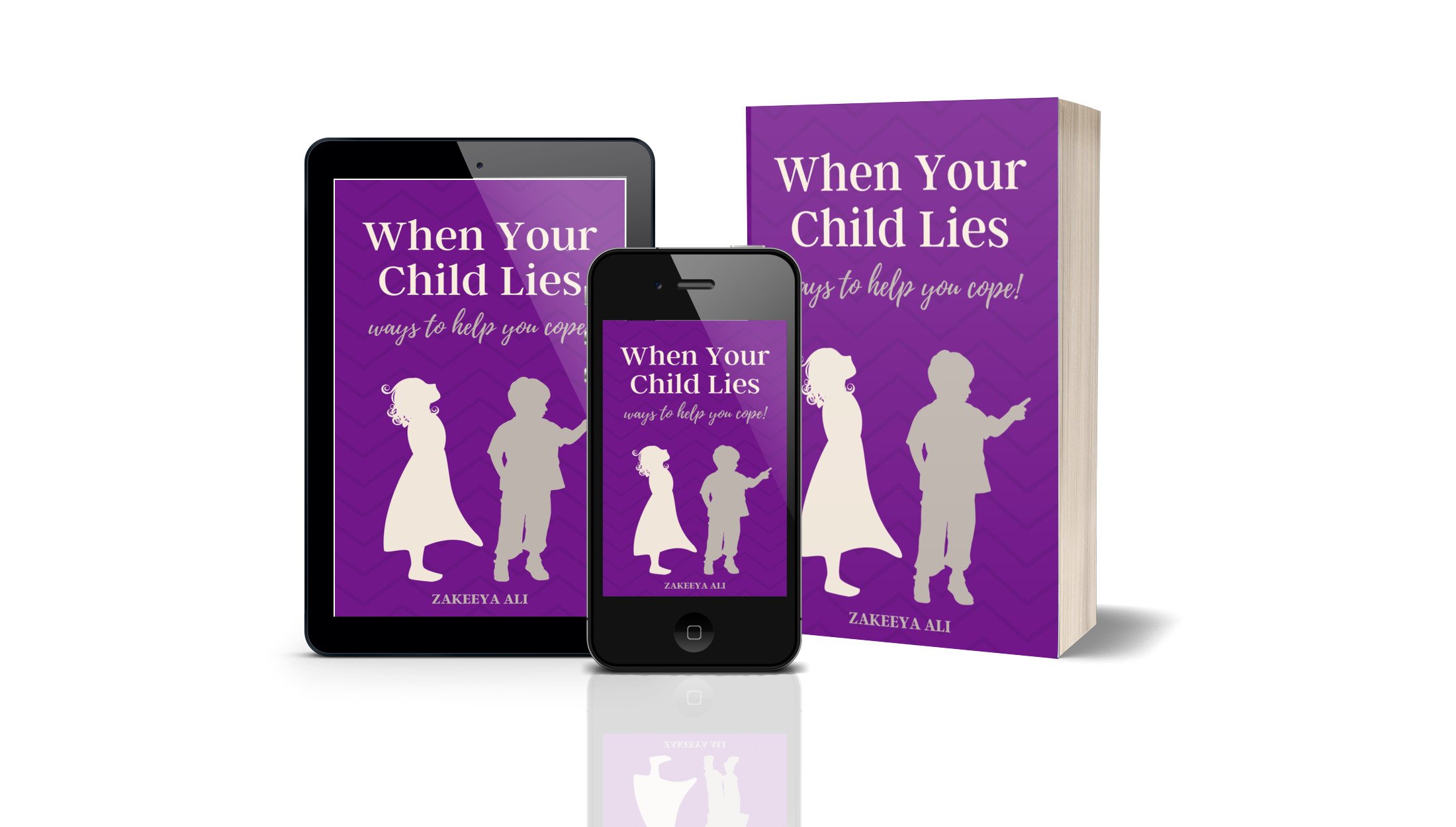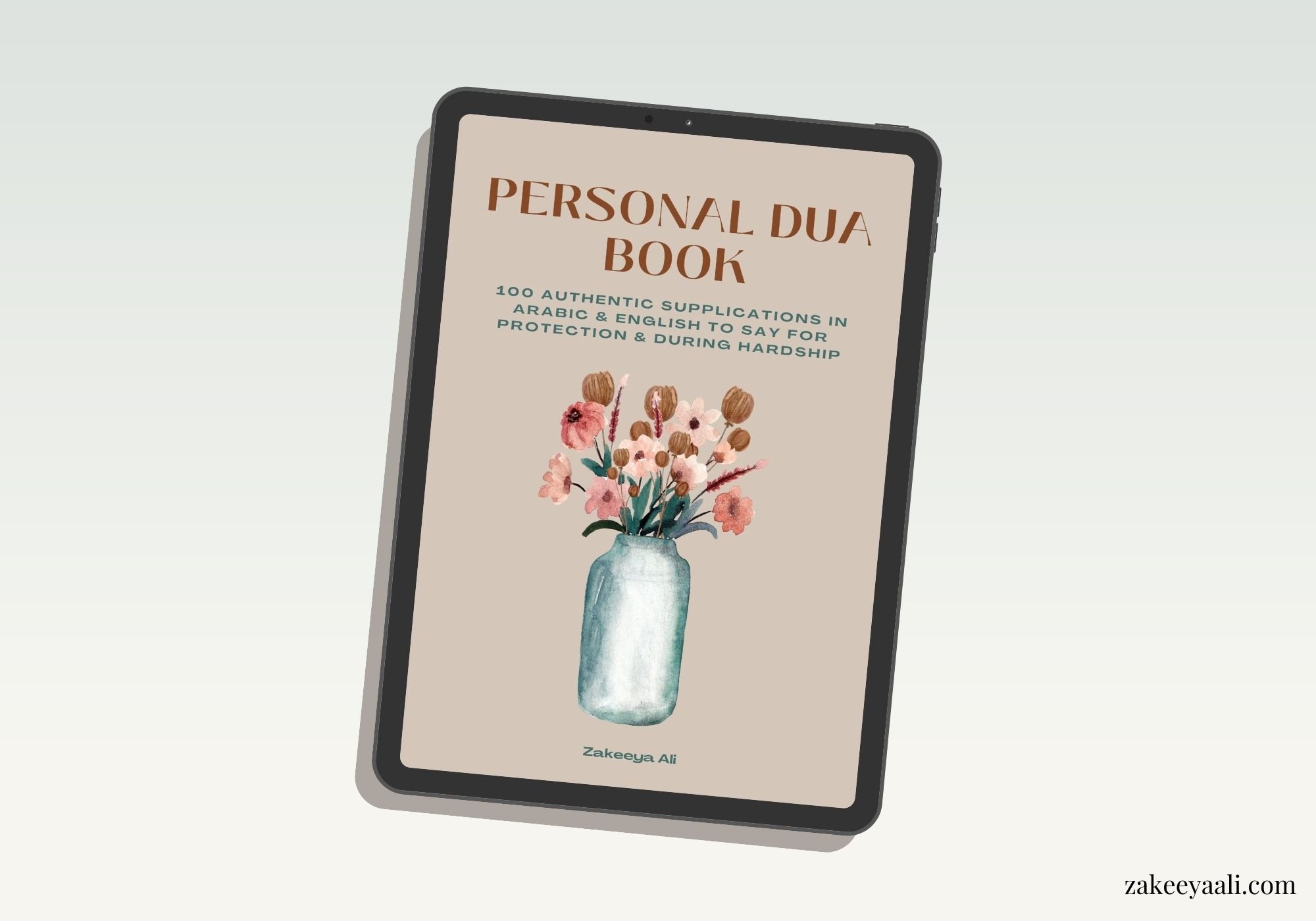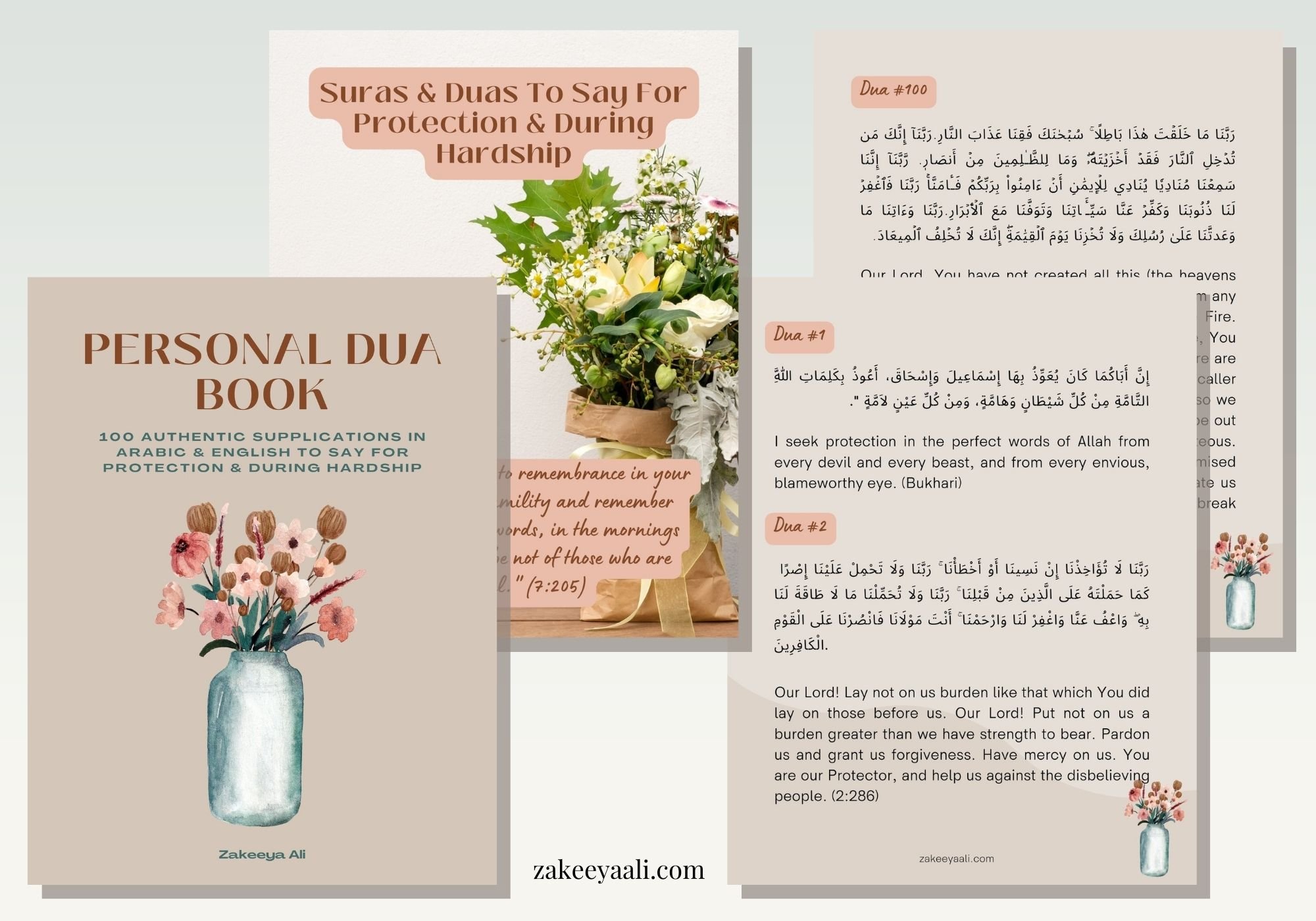How to Feel Close to Allah During Hayd
Many Muslimas feel that when "that time of the month" comes around, they feel ‘cut off’ from their spirituality. Some may view menstruation, also known as periods, or in Arabic as hayd, as a time where you refrain from all forms of worship. Others think of hayd as a vacation from praying, fasting, and reciting the Quran. Unfortunately, any way you see it, it causes us to feel distant from our worship and thus from Allah SWT.
However, as Muslims, we are never “cut-off” from worship and Allah SWT is always there. Our worship is the basis of our existence and the very reason we were created.
Allah SWT Says:
“I have created the jinn and humankind only for My worship.” (Quran 51:56)
Without a doubt, it is forbidden for a woman in hayd to perform certain religious obligations. She cannot practice certain things like:
Remain in the masjid.
Touch or recite The Holy Quran.
Pray salah.
Fast.
This restriction during menstruation results in some Muslimas feeling void of:
Spiritual closeness to Allah SWT.
Spiritual growth.
Spiritual benefit.
Spiritual reward.
For this reason, many Muslimas become upset if their hayd begins on special holy nights, in Ramadan, or if their cycle is long and they cannot worship the way they usually do! Alhumdulillah there are ways to still feel close to Allah SWT while experiencing hayd. Here are some tips to help with that.
Be pleased with Allah's SWT Qadr
Is it all about praying and fasting, or is it really about pleasing Allah SWT? Sometimes we get so caught up in the rituals, that we forget the very goal of our worship - Allah SWT is the core of it all! Remember that Allah SWT is the One who ordained hayd for women:
“Verily, this is something that Allah has written upon the daughters of Adam.” - Bukhari & Muslim
Hayd is not a curse or punishment
In Islam, menstruation is a sign of good health. The timing and length of hayd a woman experiences is part of what Allah SWT has written for her. It is part of our rizq, so how can we complain when part of faith is being pleased with the Qadr of Allah - the good and the seemingly bad.
Honoring Allah's limits on us = reward
We need to remind ourselves that when refraining from the things that Allah SWT has prohibited while in hayd, is an act of worship in itself. This is highly rewarded! The act of refraining is an act of obedience to Allah SWT. Again, it is not the act of praying that is good, but performing prayers because Allah commanded us to do so, and our obedience is pleasing to Allah.
When Allah SWT says, “Pray”, we pray, when Allah SWT says, “Don’t pray”, we don’t pray. That is the essence of ubidiya (slavehood) to our Lord. Reflect on this and see how Merciful Allah SWT is at that time of the month when our energy is low, and our morale is weak. We will get rewarded like we would, if we prayed, but without having actually prayed, subhanAllah.
Abstinence increases fervor
Furthermore, by being unable to recite from the Quran and when abstaining from salah for a particular time, you will appreciate it more. You will find yourself longing for your prayers and reciting the Quran, especially if you are consistent in it, which can make you return to those acts with even more fervor.
According to some scholars such as Ibn Ata’illah who wrote a famous Book of Wisdoms (al-Hikam al-‘Ata'iyya), a classical manual of spiritual development, said that there is the wisdom of Allah SWT “blocking”. When we are “blocked from some acts of worship at certain times, as well as causing concern for us, it works to enable us to establish the prayer rather than simply doing it.
Many forms of worship are still open
Allah SWT in His vast and endless generosity has created so many ways for us to draw closer to Him besides through the rituals. We are not only limited to prayer, fasting, and reciting The Quran.
At the time of hayd, a woman is granted the opportunity to experience unique blessings that different types of devotional acts can provide for her spirituality. To name a few, a menstruating woman can still perform unlimited:
1. Dhikr
Choose a secluded place if you are able. Sit facing the Qibla, keep the limbs still and the heart present, for the best remembrance is done with the heart and tongue together. There are many notable books of adhkar from the Prophetic Sunnah that you can use if you haven’t memorized any yet.
2. Dua
At hayd we often feel more emotional, sensitive, vulnerable, and low on energy – this makes it one of the best times to make dua! We often utter during our cycle that ‘we cannot pray,' but this is far from the truth. For dua is prayer and the beloved of Allah SWT stated,
“Dua is the essence of worship.” - Musnad Ahmed & Tirmidhi
3. Istighfar
If the Prophet PBUH who was infallible and already promised Jannah, made ishighfar over seventy times a day, how many times should we do it? Use the extra time you have when not praying salah to make istighfar. One can say what the Prophet PBUH was narrated as saying over a hundred times at a time:
Rabbighfir li watuub alayya innaka antat tawwabur rahim
“My Rabb! Forgive me and pardon me. Indeed, You are the Oft-Returning with compassion and Ever Merciful.” - Abu Dawud and At-Tirmidhi
One can also say the repentance of Yunus A.S in the belly of the whale:
la ilaha illa anta subhanaka innee kuntu mina alththalimeena
“There is no God but You, Transcendent are You, I have been one of the unjust.” - Quran 21:87
Examine yourself and your life to see where you are failing and make repentance. The scholars say it is the first step to drawing closer to our Lord.
4. Study Books of Sacred Knowledge
Books such as fiqh, tafsir, hadith, akhlaq, seerah, biographies of the Sahaba R.A, or any that increased you in beneficial knowledge is one of the greatest acts of worship that one can do. You will feel yourself drawing closer to Allah SWT as you learn about His Magnificence and the beauty of Islam.
"Allah makes the way to Jannah easy for him who treads the path in search of knowledge." (Muslim)
5. The Quran in your native language
At the times you would usually recite the Quran in Arabic, you can still pick up The Quran in English or your native language during your hayd. Use this time to deepen your understanding of the message you are reciting for the rest of the month. As long as the book does not contain 50% or more of The Quran in Arabic, then it is not considered the full Quran and thus the forbidden option to carry or touch it is not in question. Such a book can be carried and studied like any other book, but one should avoid touching any script of the Quran written within the book.
6. The Quran in other ways
You can still recite verses of The Quran for dhikr, dua, or protection purposes as long as they are recited with that intention only. If you would like to keep up your recitation habit in some way, or if you are memorizing verses, you can also recite The Quran in your mind. Phone apps, websites, and electronic Qurans make this easy to do without carrying or touching an actual Quran. Though one must avoid directly touching the Quranic script on the screen. You can also use a Quran with translation or other commentaries so that the mushaf itself is less than 50%, but again avoid touching the mushaf letters.
6. Listen to the Quran
There is a great benefit in listening to The Quran. Availability of various websites and software enable us to hear The Quran, read Arabic (without uttering it), and read the translation all at the same time, without even having to worry about touching or carrying the Quran.
7. Attend a Halaqa
We can attend a halaqa online or at a venue that’s not a masjid. The fiqh of menstruation is imperative to know, and if you don’t know it, that’s a great halaqa to sign up for. You could even schedule a halaqa at your home for this purpose and plan it for when you are menstruating. This way you can strengthen that spiritual connection by sitting with sisters of faith remembering Allah.
8. Reflection
The best time for reflection is when you are the least preoccupied with worldly affairs and less likely to be distracted or disturbed. You can reflect on the Afterlife and the imminence of death - imagining your burial, questioning of the grave, standing on youmul Qiyama and receiving your book, as well as on Jannah and Jahannam. You can also reflect on your blessings, the attributes of Allah SWT, the marvels of creation, Allah’s complete awareness of you, seeing you, knowing all about you, and His nearness to you. This is also a beautiful form of worship.
9. A Lecture
Often we need to put up our feet and relax when we are menstruating. Our bodies may be fatigued, achy, and weak from hayd. So why not put up your feet up, sip a warm, soothing tea, and watch or listen to an inspirational lecture by your favorite scholar. Again, when this is done for the Sake of Allah SWT, it is an act of worship that will bring you closer to Him and His reward!
In conclusion, we can see that during a woman’s hayd, her devotional acts do not need to decrease in the slightest if she doesn't want it to. We just need to refocus from what we can’t do, to what we can do and realize that obedience to our Lord is the highest form of worship alhumdulillah.
Salam, I’m Zakeeya!
I believe that making our homes a safe haven for our families, as well as being a wife and mother, brings us great blessings, contentment, and benefits to society as a whole. Since 2011, I've been dedicated to assisting Muslimas in finding tranquility in their roles, taking better care of themselves, and achieving inner peace. Our journey in this world is not an easy one, but I pray the tools and guidance I offer will help you face life's challenges with more gratitude and mindfulness. Join me as I share wifehood, motherhood, homemaking, and lifestyle solutions that make life more fulfilling for you as a woman! Read more about me here.
Do you need advice and tips to assist you on your motherhood journey? Order my book, available as a paperback and ebook!
If you need discreet, tailored advice, you can book a one-on-one mentoring session with me to get private support.
Find guidance with your most challenging parenting issues with these helpful reads.
Do You Want to Instill Your Daily Dose of Dua?
Order my handy dua ebooks, which are available in an Arabic/English or English only version, and contain 100 authentic duas to say for protection and during hardship.


